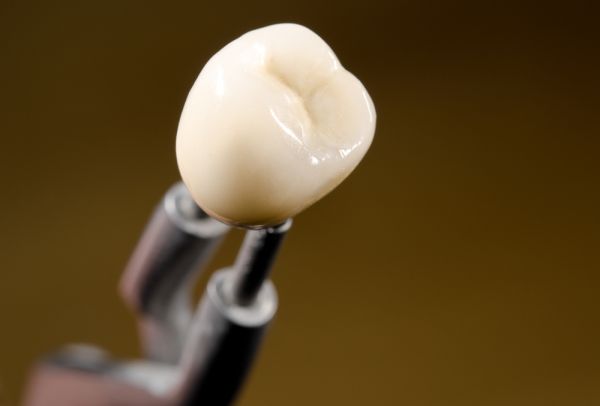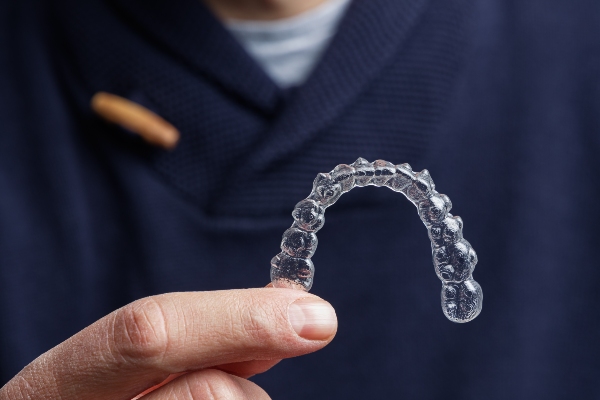Types of Dental Implant Crowns

A dental implant crown is a restoration that a dentist attaches to an implant. It becomes part of the artificial tooth that sits above the gum line. This new artificial crown is what you will use to chew. It restores the aesthetics of your smile and gives you back your confident grin.
Since a dental implant crown is on the visible portion of your new tooth, it makes sense to learn more about it before you get one.
Different ways dentists categorize dental implant crowns
A dentist will present you with a couple of options for your implant-supported crown. They will walk you through the different types of materials used to make dental crowns. They will also explain the pros and cons of each type of dental crown.
The dentist will also explain the different ways that a dental implant crown attaches to the implant. A patient needs this information to choose a dental crown that is comfortable, durable and pleasant to look at.
Types of dental implant crowns, based on material
There are various types of dental implant crowns. Some are made of metals like gold and others are made of porcelain fused with metal. The most popular crowns are tooth-colored, ceramic crowns. They are loved for their natural appearance, even though they are the least sturdy of the three types.
A patient will choose the type of crown that meets their needs. If the patient wants a crown that can withstand anything, they will choose a metallic or porcelain-and-metal crown. If they want a uniform smile, they will choose the tooth-colored option.
Types of dental implant crowns, based on how they attach to the abutment
Dental labs fabricate dental implant crowns based on the instructions of the dentist that requests said crown. A dentist will request one of two types of crowns:
1. Cement-retained crowns
This type of implant crown is attached to the abutment with dental cement. Dentists and patients alike prefer this type of crown for the following reasons:
- Dentists like this type of crown because it is easy to fabricate
- It is very easy to attach a cement-retained crown to an abutment. There is no need to tighten awkwardly positioned screws
- Patients like this type of crown because it looks very natural. There are no allowances for screws on cement-retained crowns
That said, this type of implant crown has some drawbacks. For starters, the dental cement can sometimes seep into the gums, causing problems like inflammation and bone loss. These crowns are also harder to maintain because you cannot unscrew them if a problem arises. Detaching them from the abutment can be messy.
That is why some dentists prefer crowns that are screwed onto the abutment.
2. Screw-retained implant crowns
As their name suggests, screw-retained crowns attach to abutments with screws. This crown has two allowances for two screws. One hole is on the biting surface of the crown and it allows for the insertion of the occlusal screw. The second hole is on the side of the crown that faces the tongue. It allows for the insertion of the lingual screw. These two screws attach to the abutment and hold the crown firmly in place.
The great thing about screw-retained crowns is that they are easily detachable, which makes maintenance very easy. However, the holes that hold the screw are prone to cracking and chipping, as a result of wear and tear.
Visit a dentist who can help you make the best choice
You need an open, friendly dentist who will lay out all the facts concerning dental implant crowns, including the merits and drawbacks of each type. Our dentist has years of experience working with all kinds of implant crowns. Schedule an appointment with our Sunnyvale clinic and start the process of replacing your missing tooth.
Let's get started…
Request an appointment here: https://stonecanyondental.com or call Stone Canyon Dental at (972) 226-6655 for an appointment in our Sunnyvale office.
Check out what others are saying about our services on Yelp: Read our Yelp reviews.
Recent Posts
Getting a dental crown is a seamless procedure that is done in dental offices every day. There are various reasons to get a dental crown, which will play a role in how the process goes. For example, for those getting a crown to finish the tooth replacement process after an implant has been inserted, the…
If a patient suffers from misaligned teeth or a misaligned bite, Invisalign® clear aligners might be the solution they need to ensure their smiles stay bright – and straight! As one of the most trusted clear aligner systems will help straighten teeth and correct the bite without wires and brackets, meaning that patients can smile…
Your dentist may recommend a dental bridge if your case needs it. Every patient has a different set of needs. Proper assessment allows the dentist to suggest the right dental replacement. Here are the details on when a dental bridge may become your dentist’s recommendation.Dentists often encourage their patients to stop consuming tobacco. Following this…
When it comes to replacing missing teeth, dental bridges are a popular and reliable option that offers versatility by restoring one to four missing teeth in a row. Along with restoring a smile by replacing missing teeth, a dental bridge offers multiple benefits to one's oral health while addressing several issues simultaneously.Tooth loss can occur…







